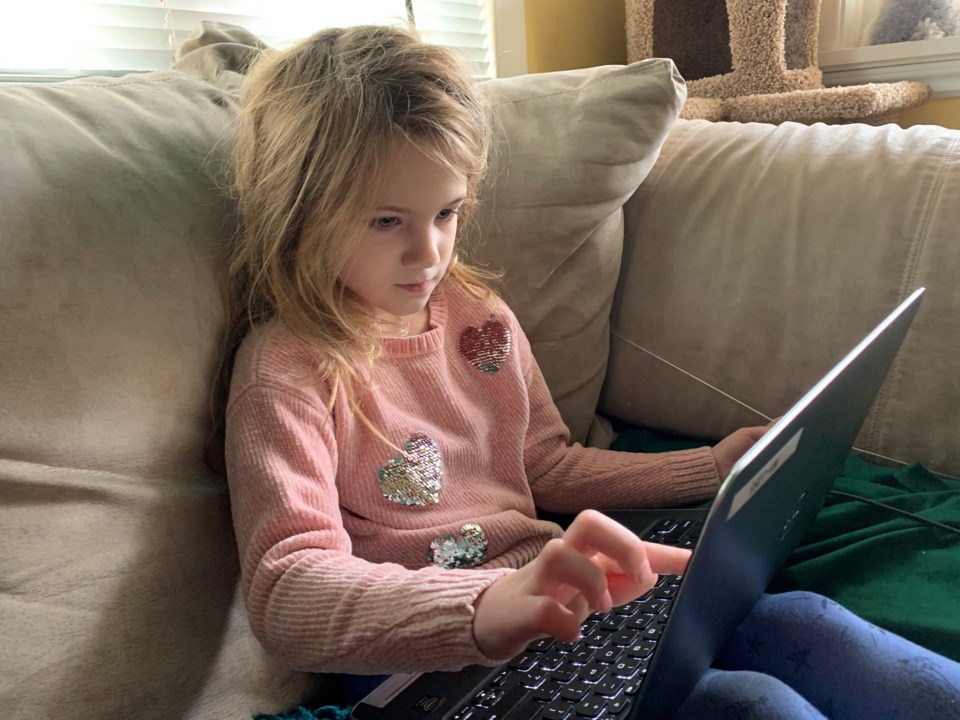There’s no denying that school days look a whole lot different for New Westminster students in the face of the COVID-19 pandemic.
But the school district is working hard to make sure every student in the city can keep learning even without going into a classroom.
The district has been working on a three-phase plan to get remote learning up and running in the city since the province suspended in-class instruction following March break.
Superintendent Karim Hachlaf updated the school board about those efforts at the operations policy and planning committee meeting April 21.
He noted that in the first phase, the district reached out to connect with parents, students and staff. A survey sent out to families, which garnered a “phenomenal” 4,000 responses, assessed families’ needs in areas such as child care, meals and technology.
From there, the district put plans in place to fill those needs, including ensuring that those families without technology could get access to it.
“Remote learning requires an electronic device and an online device, and to that end we’ve been able to redeploy our Chromebooks,” Hachlaf said, noting that more than 600 of the devices have now been loaned to families in need of them. “We’ve been certainly happy to get that hardware into the hands of families as we navigate this new learning environment.”
Associate superintendent Maryam Naser said a “very small number” of families reported having no Internet access, and the district was able to connect those families with free Internet service.
Now, Hachlaf said, the district is in Phase 2, where it works to further develop remote learning opportunities for students.
“It has been gradual, and our families have been very patient with us,” he said.
Teachers around the district are now connecting with students via Google Classroom or Microsoft Teams.
“We certainly are intensifying the level of support with our teachers and our EAs to continue that delivery of instruction, and with that you’re seeing some really neat ways in terms of our staff engaging via video, for instance, with their students,” Hachlaf said. “That’s been fantastic to see in a short period of time.”
Hachlaf said there’s more work to be done as the school district navigates the new terrain of online learning, especially as it moves into Phase 3. In that next phase, he said, the district will be looking at ways to evaluate and assess students’ work.
“With the uncertainty of how long we may be in this current state, we do need to look at assessment,” he said. “I want to note that doesn’t mean it’s going to look exactly the same, but we are looking to still provide feedback to parents and students on the work that they’re doing during this final term and in order to produce final marks for June.”
Hachlaf told the board the district’s efforts are being undertaken with an eye on the core values and strategic priorities it identified in a recently completed strategic plan.
Those four priority areas – transform the student experience, build meaningful relationships, lead into the future, and ensure full participation of learning – are all coming into play with pandemic learning plans.
“All the work that we recently completed surrounding the strategic plan remains front and centre of our work. I think we can see, in more ways than ever, the work we’re doing with the remote learning is absolutely transforming the student experience,” he said.
Likewise with “building meaningful relationships.”
“We’ve needed to certainly work together amidst this pandemic, and that has certainly brought us closer together,” Hachlaf said.
And he noted the work the district is undertaking to set up remote learning is laying the groundwork for the future of New Westminster’s schools.
“There have certainly been opportunities, as we’ve navigated remote learning environments, that will help us well beyond the pandemic,” he said.



